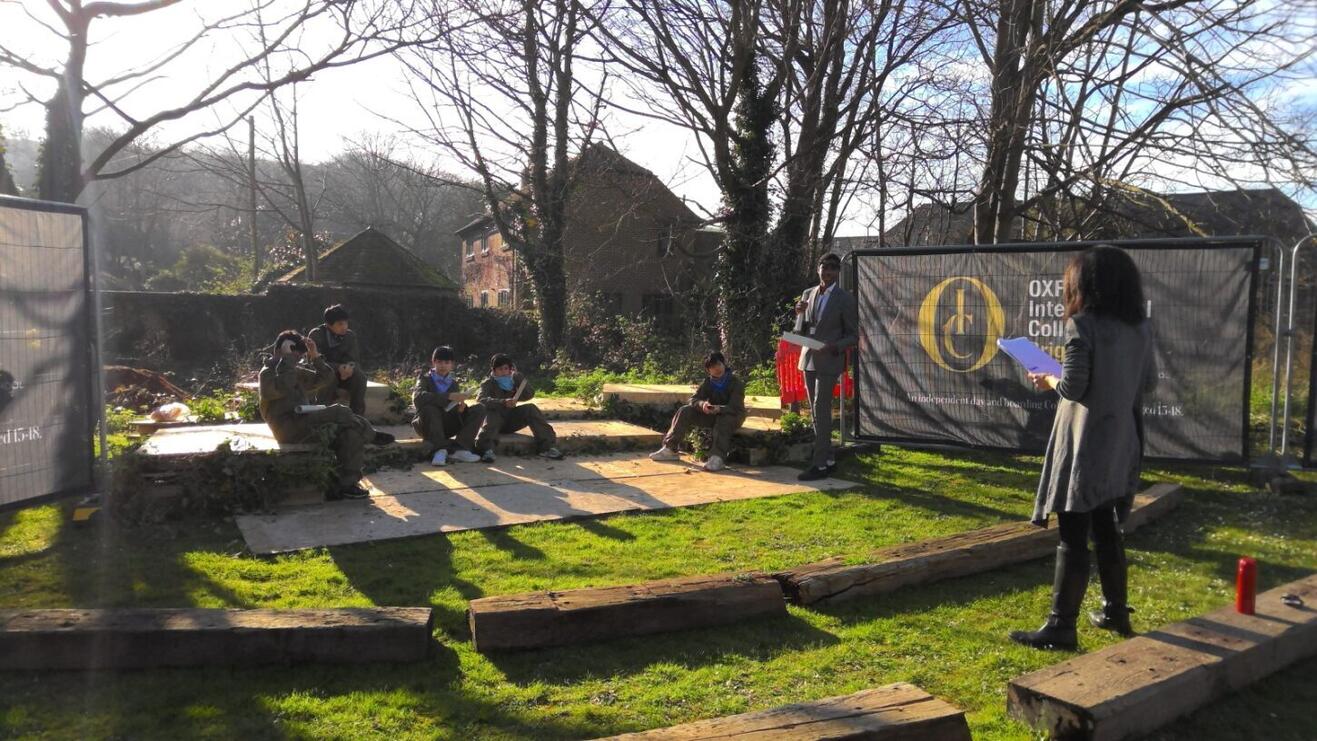At OICB, we encourage students to plan their revision time strategically. This supports them in managing their time and helps them feel “prepared and confident for their examinations”, Dr Gemma Hannan, Deputy Principal Academic. To do this, we encourage students to create a revision timetable that allocates specific time slots for each subject, ensuring a balanced approach to their studies. To plan their time effectively, students should create a calendar that highlights key dates in the academic year. This is a great way of prioritising tasks and keeping organised. Students would be encouraged to add any other personal arrangements to this calendar and share this calendar with their strategy tutor. Sharing the calendar with their strategy tutor fosters a collaborative approach to learning, empowering students to achieve academic success. This is a crucial step in ensuring they stay on track with their academic goals. By involving their strategy tutor in their revision planning process, they not only gain valuable insights and guidance but also have someone that serves as a powerful motivator, encouraging them to stick to their study schedule and make consistent progress towards targets. Additionally, a strategy tutor can offer personalised advice and support to optimise their revision strategy, ensuring that students effectively utilise their time and resources.
We encourage our students to consider the rule of three when making a revision plan. This refers to sleep, study and free time and is broken down by 8 hours of sleep being recommended, 8-10 hours of study and 6-8 hours of free time. Taking free time is important as it gives the brain an opportunity to absorb the information they have taken on board that day. Free time should be an agreed time that fits within the revision schedule. Ways to spend this free time could include spending time with friends, reading for pleasure to allow the brain to head to a different place or exercising. At OICB we offer a variety of different activities for our students, find out more here. We also encourage our students to have the correct nutrition, supported by our catering team who listen carefully to the types of food that students need to fuel them for the revision they are undertaking.
At OICB, we advise our students to allow time for repetition, particularly for the subjects that they find the hardest. Repetition is key to retention and we remind students of the importance of returning to material and focusing on aspects they feel less confident in. Reviewing material multiple times, over spaced intervals, reinforces learning and improves memory recall. “Engaging with topics that they find the hardest and where learning feels like a challenge, is often where the best learning takes place”, Dr Gemma Hannan. This is discussed in more detail in our Webinar on revision guidance.
Students should be encouraged to create a dedicated study space that is free from distractions and conducive to learning. Keeping this study area organised and clutter-free promotes focus and productivity. Dr Gemma Hannan explains in more detail that “we encourage students to think about where they are studying and maintaining a clear space so that the brain is not distracted and can focus on the learning”. At OICB, students can also take advantage of the study spaces that we have available on campus, such as Ainsworth and Turing Common Room and the Peacock Room. These spaces are designated quiet zones and provide a conducive atmosphere for concentration, offering resources to support revision efforts. Moving around enables the brain to not get fatigued with being in the same space and making use of these areas on campus is also effective in offering another space for students who want to get out of their bedrooms or have a change of scenery.
In our recent Webinar on revision guidance, Dr Gemma Hannan encourages students to find which learning method works best for them, as this differs from person to person. For example, if you are a visual learner, it may be of benefit to incorporate visual aids into your revision process. This not only reduces the amount of text but can also help to visualise complex concepts and enhance understanding. This could include mind maps, diagrams and charts, whilst making use of colour coding and visual cues to make information more memorable. Other individuals could benefit more from a technique called a ‘memory journey’. Dr Gemma Hannan touches on this in her Webinar. This technique involves working through a process, learning the chronological order of events and creating something that is unique to the individual so that in an exam it can be recalled easier.
It is also important to mention that some revision techniques are passive, like reading over notes or highlighting keywords. Typically, we don’t take in much information by doing these activities alone. It’s much more effective to engage in active revision techniques that involve participation and interaction. These techniques could be summarising key points aloud, teaching concepts to a friend, or creating flashcards for a quiz. Active learning promotes deeper understanding and retention compared to more passive methods.
Students take advantage of the resources that OICB offers such as the Student Data Dashboard. The Student Data Dashboard plays a pivotal role in enhancing revision techniques by providing valuable insights into academic performance and progress. By having access to a comprehensive overview of their performance metrics, students can identify areas of strength and weakness, enabling them to tailor their revision strategies accordingly. Students can make informed decisions about where to focus their revision efforts and allocate their study time most effectively. It also serves as a motivational tool, allowing students to set goals and track their progress.
The last stage of a revision plan should be to become familiarised with the exam format and style by practicing past papers. This not only helps students to understand their progress but also familiarises them with the types of questions they may encounter on exam day. These should be marked so that students are able to see where they have achieved well and aspects to improve on. This feedback should be used to re learn material. Whilst past papers are beneficial, it's important that students do not learn off mark schemes as not only are they unlikely to see questions replicated in the same way again, when faced with novel challenges, they need to be able to face them flexibly and apply their knowledge effectively.
By implementing these effective revision techniques, you can enhance your learning experience and maximise your academic potential. Remember to stay organised, stay focused and stay motivated as you embark on your revision journey.









.jpg?h=252&iar=0&w=372&rev=763dcefa193240fda8fd03bb74e337fe&hash=59F0EEFEDB3445EF9673E86E7B580168)




